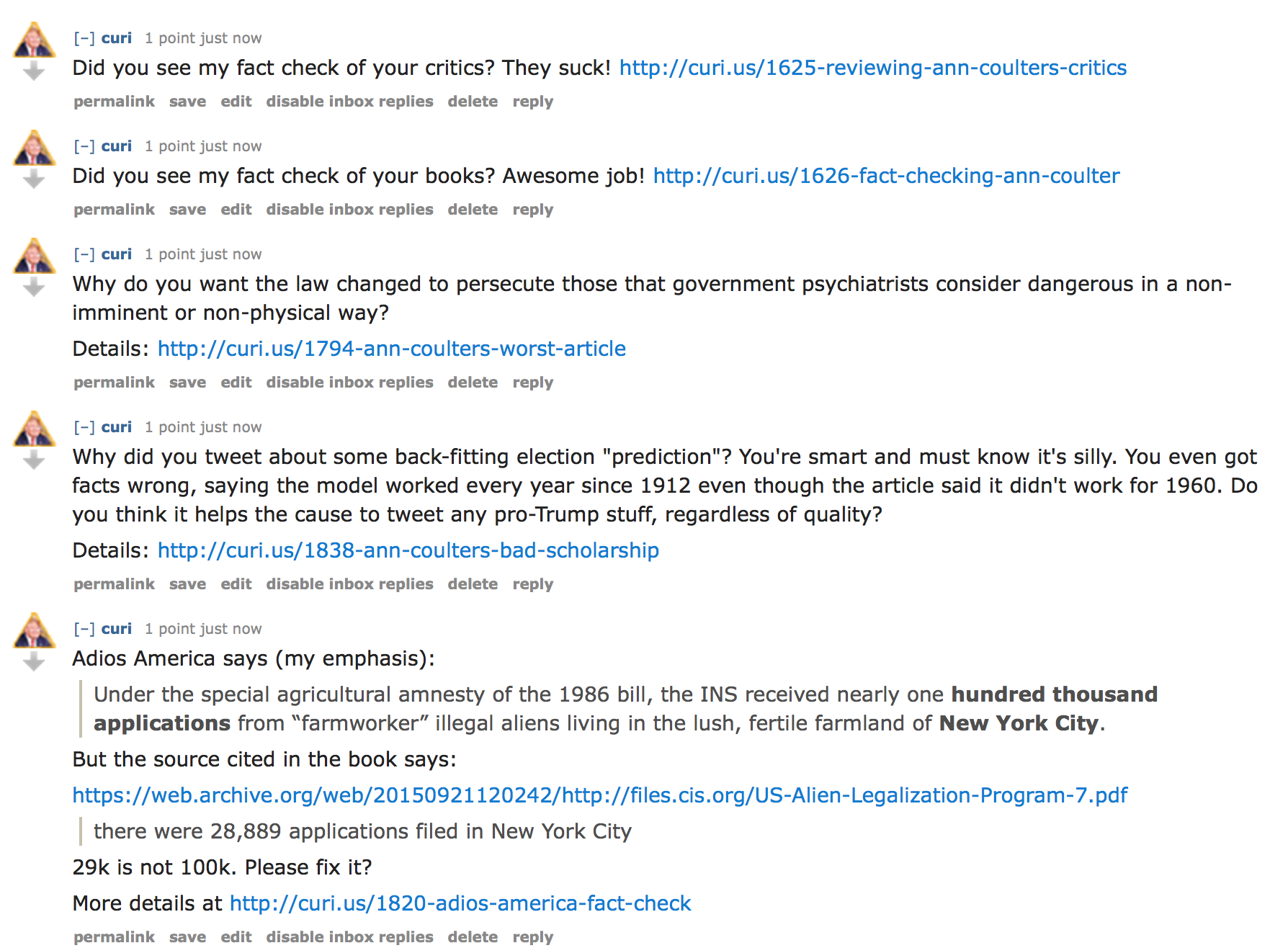H1B visas allow immigrants for filling high tech jobs. They're getting attention currently from anti-immigration presidential candidates like Ted Cruz and Donald Trump.
Some right wing people like the idea of H1B visas, contrary to the Republican presidential candidates. H1B visas sound compatible with the free market. What's wrong with educated immigrants coming here to work? Isn't that part of free trade? Doesn't capitalism mean competing in a global marketplace?
A fired Disney employee gave emotional testimony about the H1B program recently. He said Disney workers were forced to train foreigners to replace them at their jobs with threats of withholding their severance pay if they didn't do it. And they were lied to about the availability of other Disney jobs to transfer to.
A lot of people are upset. Some libertarians don't care. They say, "Too bad, anyone should be able to be fired for no reason at any time".
I looked at how H1B visas work. To bring in foreign workers, you have to agree to pay them market wages and you aren't allowed to displace American workers from their jobs.
Disney brought in foreign labor as a cost cutting measure. They wanted to fire Americans and pay the new workers less money. This is a blatant abuse of the H1B program. Whatever you think immigration policy should be, it's bad when companies break the law.
The H1B visa program is only meant to bring in workers for tech jobs that a company couldn't find an American to do. The point is not to get cheaper labor, it's to get labor at all when there's a shortage. Disney is abusing the spirit of the program and violating the clearly written terms of how this law works.
None of this is ambiguous. Let me show you some of the conditions involved with bringing in H1B workers:
Labor Condition Application for Nonimmigrant Workers ETA Form 9035 & 9035E
Wages: Pay nonimmigrants at least the local prevailing wage or the employer’s actual wage, whichever is higher, and pay for non-productive time. Offer nonimmigrants benefits on the same basis as offered to U.S. workers.
Displacement: Non-displacement of the U.S. workers in the employer’s workforce
Secondary Displacement: Non-displacement of U.S. workers in another employer’s workforce
Recruitment and Hiring: Recruitment of U.S. workers and hiring of U.S. workers applicant(s) who are equally or better qualified
If you want more of the fine print, look here.
Finally, I want to explain, from a free market capitalist perspective, why the H1B visa program is crony capitalism, not free market competition.
Capitalists might think, "if the foreigners will work for lower wages, that's a good thing and they should be hired".
But, workers who come here with the H1B program can't really change jobs. They are stuck with the company sponsoring their H1B visa. So they don't get to freely compete on the market, and therefore they get underpaid.
US citizenship has value. The H1B program lets some government-favored companies hand out valuable US citizenships – which the company is given for free – and then pocket that value in lower wages paid to the immigrants. And that's in addition to the lower wages they can pay to people for the several years where firing them would mean they get deported.
American workers cannot compete on wages with workers who are underpaid because they can't change jobs, and who take lower pay in return for immigrating. That isn't an ideal of capitalism, it's government distorting market wages. And it's a way for companies with friends in the government to get ahead – crony capitalism.
Edit: My mistake: H1B is a temporary work permit. It can last for 3-10 years but they don't get citizenship. Consequently it's called a non-immigrant visa. Thanks Justin.
This doesn't substantially change any of my arguments. A permit for staying in the US has value, just as handing out a citizenship would. And with the H4 visa, they can bring in their wife and kids, who may be able to work or go to school in the US too, while the H1B visa lasts.
H1B workers still have less job mobility than domestic workers.
And people here on an H1B visa are allowed to seek a green card and try to stay permanently. It can be a step which helps them immigrate. Wikipedia says:
Even though the H-1B visa is a non-immigrant visa, it is one of the few visa categories recognized as dual intent, meaning an H-1B holder can have legal immigration intent (apply for and obtain the green card) while still a holder of the visa. In the past the employment-based green card process used to take only a few years, less than the duration of the H-1B visa itself. However, in recent times the legal employment-based immigration process has backlogged and retrogressed to the extent that it now takes many years for guest-work visa holders from certain countries to obtain green cards. Since the duration of the H-1B visa hasn't changed, this has meant that many more H-1B visa holders must renew their visas in one or three-year increments for continued legal status while their green card application is in process.


